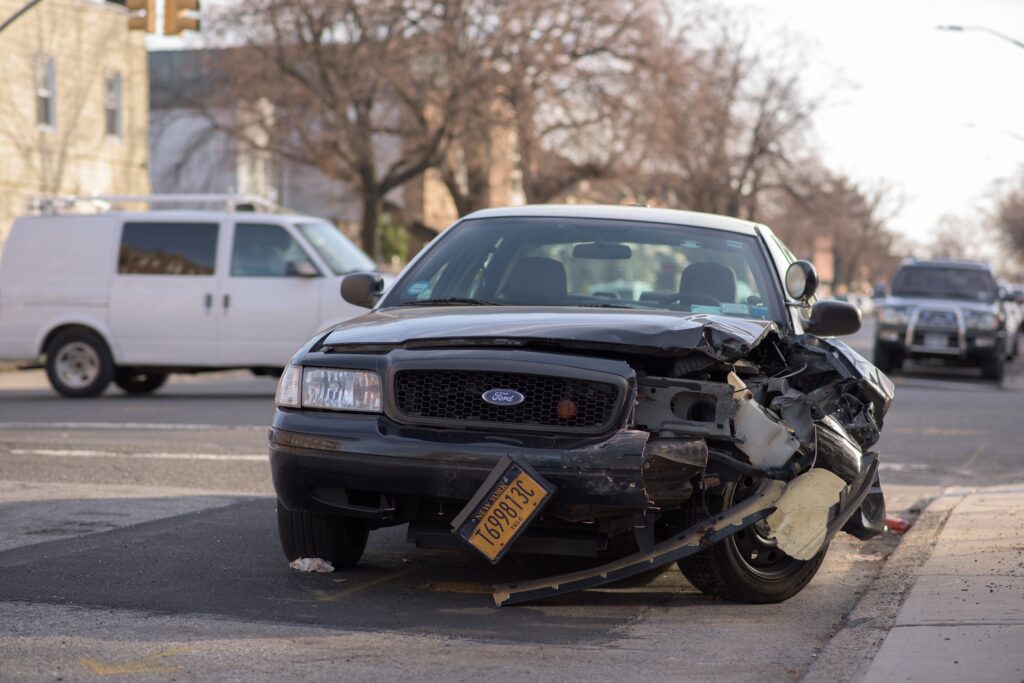Six Things to Do Following a Car Accident in New Jersey
As Seen In:





GET A FREE CONSULTATION
PRACTICE AREAS
RECENT RESULTS



The moments following a New Jersey car accident can be crucial for accident victims, especially if another party is at fault and must be held responsible. Unfortunately, those moments can also be the most chaotic.
An accident victim may be experiencing shock, surprise, stress, confusion, disorientation, and physical pain immediately following the motor vehicle accident.
While it may be understandably difficult to manage the situation in those first moments following the accident, the steps you take immediately after and moving forward can significantly impact any motor vehicle accident claim you might make in the future.
With that in mind, the experienced New Jersey car accident lawyers at Richard Hollawell & Associates have compiled this list of six things every accident victim should do immediately after a car accident in New Jersey.
By following these six steps, you will ensure that your rights as an accident victim are protected and receive the compensation you deserve.
Step 1: Remain calm and check to ensure everyone’s okay.
Your personal safety as well as the safety of those around you should be the number one priority following a car accident.
You should call 911 immediately and ask for an ambulance if anyone on the scene has been injured.
If you have experience in first aid and can do so, help anyone, including yourself, who might need attention.
Remember that you should refrain from moving an accident victim who is immobile or unconscious unless necessary.
Step 2: Exchange personal information with others at the scene.
Following a motor vehicle accident, drivers must exchange important information like names, phone numbers, and insurance information. Be sure to collect the other driver’s license number and insurance policy number.
Although gathering this contact information is important, you should limit any other contact with the driver. Do not make statements about what might have been the cause of the accident or additional details about your insurance policy. Anything you say to another driver could affect your claim.

Step 3: Whenever possible, gather any evidence from the accident scene.
Following the accident, as long as it is safe and you are able, take as many pictures as possible at the scene. Try and document the damage suffered by all of the vehicles involved. Also, take photos of any skid marks, road debris, surrounding damage, or anything else that might be relevant. If you’re unsure, it is best to photograph it anyway.
Although law enforcement, insurance company representatives, and accident attorneys might conduct a detailed investigation later, crucial evidence may be cleared or washed away before being documented properly. In this age of smartphones, taking photographs at an accident scene is easier than ever, so take them wherever you can.
You should also write down any information that may seem relevant, like weather conditions, the position of the sun, traffic information, etc. This sort of information may not only be useful to your claim but may help you remember accident details later on, especially in case you find yourself caught up in a NJ car accident lawsuit.
If anyone else witnessed the accident, be sure to gather statements from them and ask them for their contact information as well.
Step 4: Give your statement to law enforcement.
Following any motor vehicle accident, you want to ensure that you give the police a detailed account of what happened. In most New Jersey car accidents, the police should always be called. That ensures an official, detailed report is filed about the accident.
Should your injuries prevent you from making a statement to the police or if they are called away from the scene before you can make your statement, make it a point to get to the police station and make your statement as soon as possible. The police report is crucial evidence in any car accident claim.
Also, be sure to request an official copy of any police reports regarding the accident as soon as they become available. Immediately review any accident reports and, if you notice any inaccuracies, ask the police to allow you to provide additional information.
Step 5: Contact your insurance company and report the accident.
Most insurance companies require timely notification anytime you are involved in a motor vehicle accident.
Regardless of whether the claim will be processed by your insurance company, the driver’s insurance company, or if your case ultimately lands in court, you should always follow the rules outlined in your insurance policy. Following the procedures outlined in your insurance policy will be vital to protecting your rights and helping you to get the compensation you are entitled to.

Step 6: Call a New Jersey car accident lawyer before taking action on your claim.
The sooner a New Jersey personal injury attorney is contacted following a New Jersey accident, the sooner you’ll be able to file your claim and receive compensation for any medical expenses, pain & suffering, lost income, or other damages.
Having an attorney in your corner will ensure that you don’t waive any important rights or make errors that could harm your claim.
Remember, you should never give statements to another driver’s insurance company. A seasoned accident attorney will do that on your behalf. Do not sign statements, releases, or waivers, and never accept payments of any kind until you speak with an experienced New Jersey accident attorney.
A personal injury attorney’s sole purpose will be to watch out for your best interests and ensure that you’re treated fairly throughout this process.
If you or someone you love has been injured in a New Jersey auto accident, call the team of professionals at Richard J. Hallowell at 1-800-681-3550 or click here for a free case evaluation.
